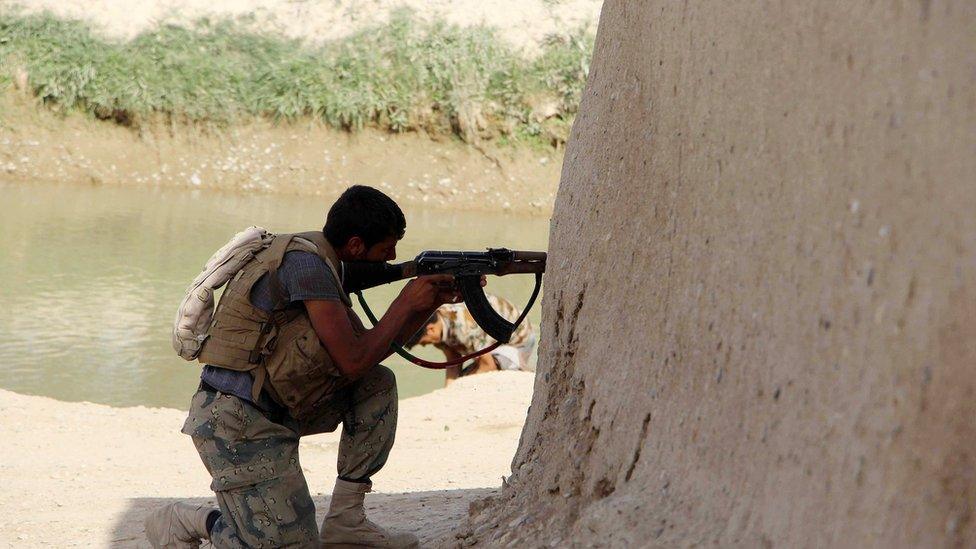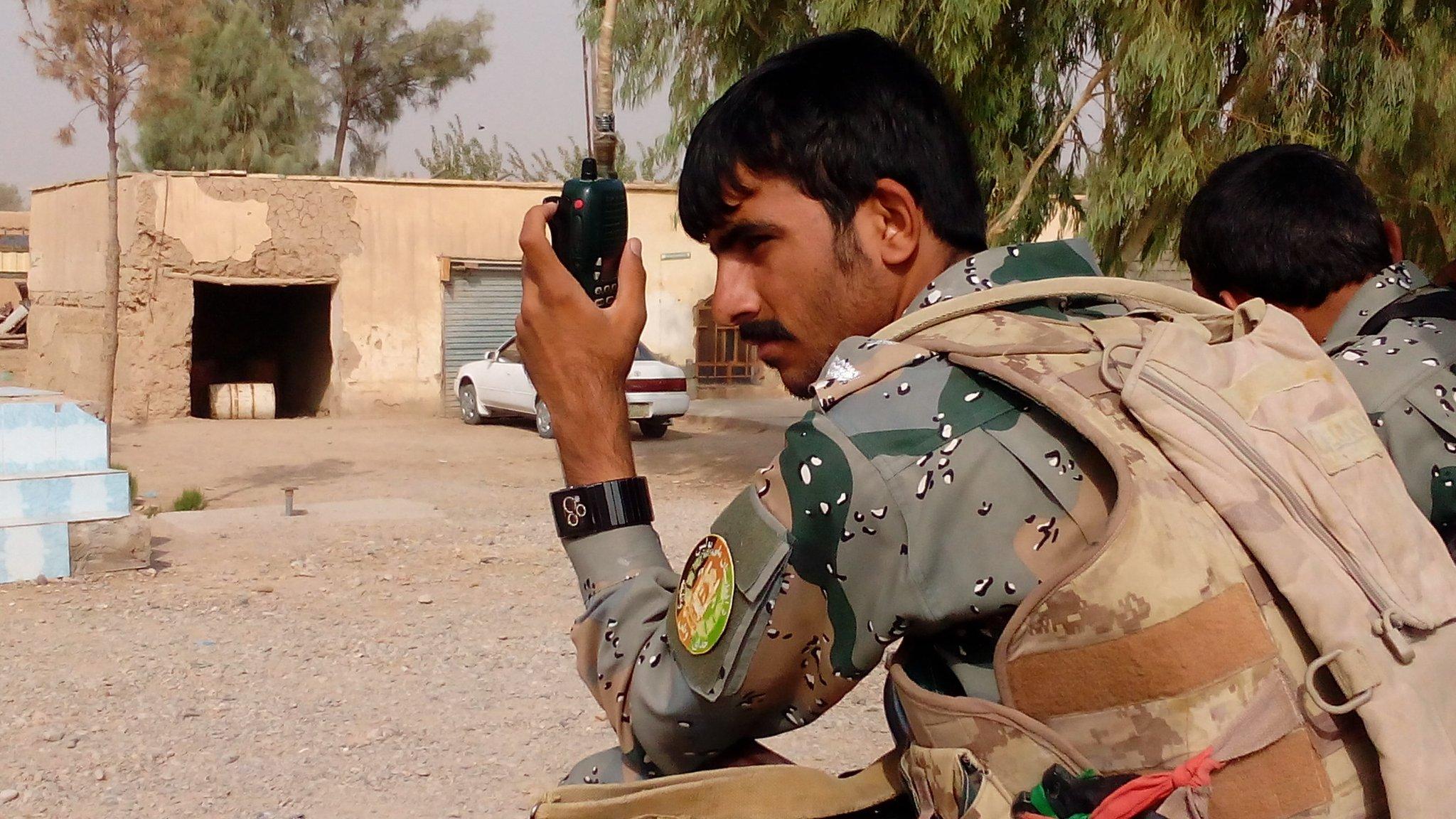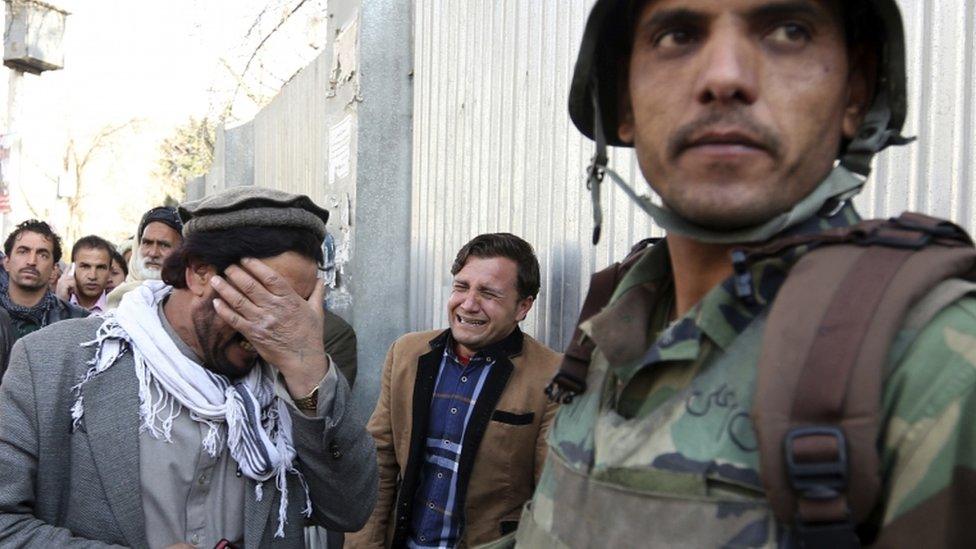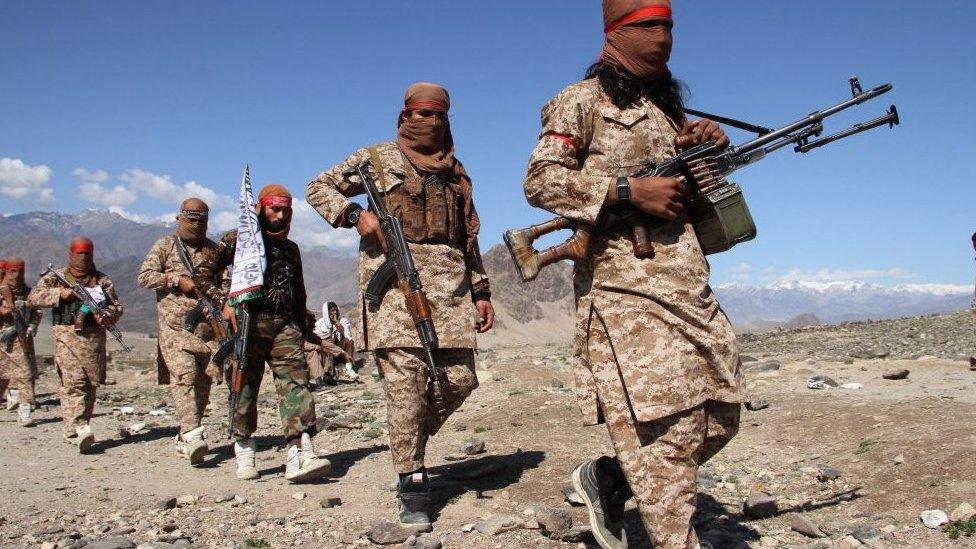Afghan Taliban announce spring offensive
- Published

Afghan troops are struggling to contain a resurgent Taliban
The Taliban have announced the start of their annual spring offensive, days after a devastating attack on Afghan troops.
The group said the "main focus" would be foreign forces, who would be targeted with a mix of conventional, guerrilla, insider and suicide attacks.
The Taliban would also focus on developing areas "cleansed from the enemy", the statement said.
The country is still reeling from last week's attack on a military base.
About 10 insurgents disguised as soldiers drove into a training compound in Mazar-e Sharif and killed at least 135 soldiers, according to an official death toll.
Some reports suggest it was even higher.
Afghanistan's defence minister and army chief of staff resigned over the attack.
"The walls are pocked with gunshot fire" - Justin Rowlatt visits the site of the attack in Mazar-e Sharif
The Taliban's annual spring offensive normally marks the start of the "fighting season", but this year militants continued fighting during the winter months.
The Taliban said that this year's offensive was to be named Operation Mansouri, after the Taliban leader killed by a US drone strike last year.
It promised a "twin-tracked political and military approach".
In areas it held, the focus would be on development and building, as well as propaganda "to help those deceived by the enemy see the truth of our struggle".
In territory held by the government, the Taliban would target "foreign forces, their military and intelligence infrastructure".
The interior ministry told AFP news agency the Taliban statement was "not something new".

Read more:

But the offensive comes with Afghan forces, supported by about 8,400 US troops and 5,000 Nato soldiers, facing what visiting US Defence Secretary James Mattis described this week as "another tough year".
According to a US government estimate in November 2016, external, the Afghan government had uncontested control of only 57% of the country - down from 72% a year earlier.
In March, the Taliban seized control of Sangin, a strategically important district in the south.
IS militants have also established a small stronghold in the east and have carried out attacks in Kabul.
The top US commander in Afghanistan says more troops are needed to break the "stalemate" with the Taliban.
Mr Mattis, speaking in Kabul on Monday, said the White House was reviewing Afghan policy and that dialogue was ongoing.
- Published25 April 2017
- Published18 April 2017

- Published19 March 2017

- Published12 August 2022
